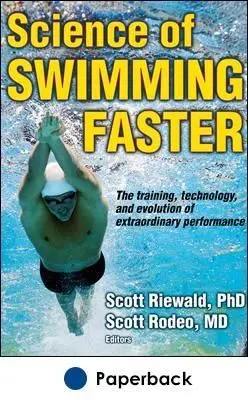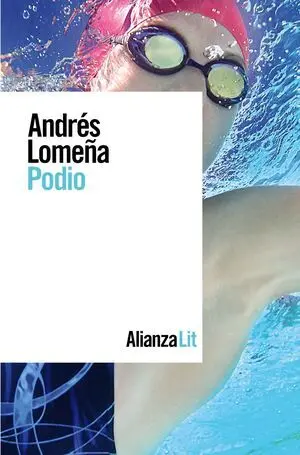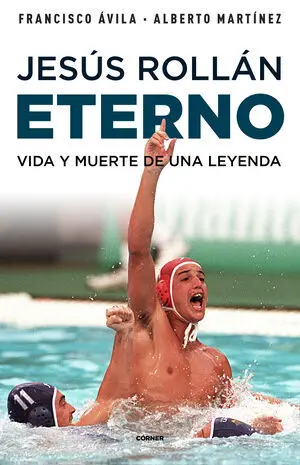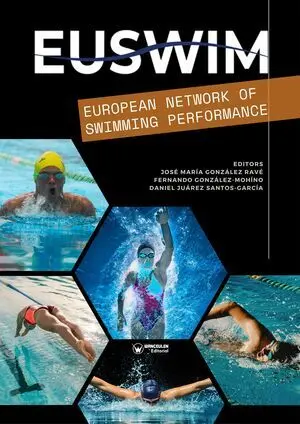
- Editorial:
- HUMAN KINETICS
- Año de edición:
- 2015
- Materia:
- NATACIÓN DEPORTIVA
- ISBN:
- 978-0-7360-9571-6
- Páginas:
- 625
SCIENCE OF SWIMMING FASTER
SCOTT A. RIEWALD SCOTT A. RODEO
In a sport where victory is often determined by a fraction of a second, its obvious why one of the most sought-after secrets is how to swim faster. However, as the worlds most renowned coaches, athletes, trainers, and researchers know, there is no secretjust science.
Science of Swimming Faster is a remarkable achievementone that embraces, explains, and applies the latest science and research that has and continues to set new performance benchmarks in the sport. It is a one-of-a-kind resource:
An easily understood repository of swimming research
Insights distilled from great sport and exercise scientists, coaches, and swimmers
A do-it-right reference for a host of techniques and tactics
The most credible and widely used training principles and programs
An analysis identifying key factors contributing to elite and world-record swimming performance
An insiders access to the strategies for training, tapering, fueling, recovery, and mental preparation being used with some of the worlds most successful swimmers.
With editors Scott Riewald and Scott Rodeo and a whos-who list of international experts on the sport, Science of Swimming Faster offers you an unprecedented wealth of advanced yet accessible information on excelling in the sport.
Table of Contents
Foreword
Preface
Acknowledgments
Part I Swimming Mechanics and Technique
Chapter 1 Fluid Dynamics, Propulsion, and Drag
Timothy Wei, Russell Mark, and Sean Hutchison
Chapter 2 Freestyle Technique
Ross H. Sanders and Carla B. McCabe
Chapter 3 Backstroke Technique
Russell Mark
Chapter 4 Breaststroke Technique
Russell Mark
Chapter 5 Butterfly Technique
Ross H. Sanders and Carla B. McCabe
Chapter 6 Techniques for Starts and Turns
Andrew Lyttle and Brian Blanksby
Chapter 7 Analyzing Strokes Using Computational Fluid Dynamics
Matt Keys, Andrew Lyttle, Brian Blanksby, Liang Cheng, and Koji Honda
Part II Physiological Aspects of Training and Competition
Chapter 8 Energy Systems and Physiology
J.M. Stager, Jonathon Stickford, and Kirk Grand
Chapter 9 Periodization and Planning
Scott Riewald
Chapter 10 The Impact of Tapering on Performance
Inigo Mujika and Andrew M. Stewart
Chapter 11 Competition Day Strategies
Scott Riewald
Chapter 12 Analyzing Elite Swimming Performances
Jodi Cossor
Chapter 13 Overtraining and Recovery
Randall L. Wilber
Part III Applied Sport Sciences
Chapter 14 Nutrition: Fueling for Performance
Charlene Boudreau
Chapter 15 Performance Enhancers and Doping Control
Jennifer L. Reed and Andrew L. Pipe
Chapter 16 Swimming Psychology: Merging Mind and Body
James Bauman
Chapter 17 Growth and Development
Rebecca Battista
Chapter 18 Sports Medicine: Swimming Injuries and Their Prevention
Courtney Dawson and Scott A. Rodeo
Chapter 19 Sports Medicine: Illnesses and General Health
Margo Mountjoy
Chapter 20 Strength and Conditioning for Performance Enhancement
Scott Riewald
Part IV Considerations for Special Groups
Chapter 21 Adolescent Swimmers
Morgan Anderson and Jordan D. Metzl
Chapter 22 Masters Swimmers
James W. Miller
Chapter 23 Female Swimmers
Jaci L. VanHeest
Chapter 24 Open Water Swimmers
Steve Munatones
Chapter 25 Adaptive Swimmers
Brendan Burkett
References
Index






